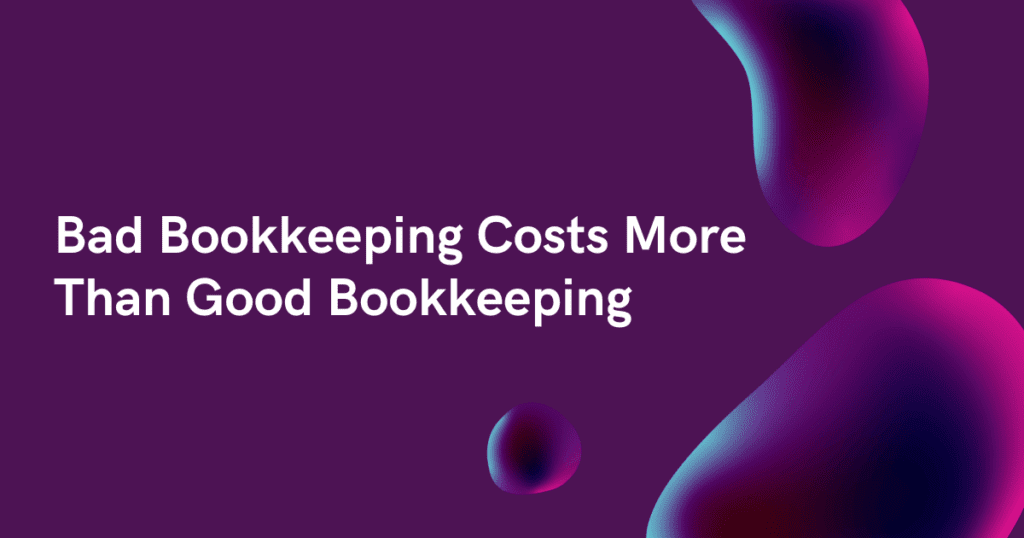Table of Contents
Introduction
In today’s fast-paced digital world, “Virtual Bookkeeping” is not just a buzzword; it’s a promising avenue to earn money online. As technology revolutionizes the way we work, the gig economy is on the rise, and virtual bookkeeping stands at its forefront.
The Booming Gig Economy: Virtual Bookkeeping in Numbers
Virtual bookkeeping has witnessed a remarkable surge in demand over the last few years. Figures tell a compelling story: more businesses are recognizing the advantages of hiring virtual bookkeepers. According to recent data, the gig economy now includes over 36% of the U.S. workforce, and virtual bookkeeping is a substantial part of this growth.
Why Virtual Bookkeeping is the Future of Financial Services
The environment for financial services is changing significantly. With advancements in cloud technology and remote collaboration tools, virtual bookkeeping is becoming the standard rather than the exception. The cost-effectiveness, convenience, and flexibility offered by virtual bookkeepers are too attractive for businesses to ignore.
As we continue reading this manual, you’ll discover not only the fundamentals of virtual bookkeeping but also the facts, figures, and trends that make it a lucrative and rewarding career choice. So, let’s embark on this journey to explore the world of “Virtual Bookkeeping” and unveil the opportunities it holds for you.
What is Virtual Bookkeeping?


In our digital age, “Virtual Bookkeeping” is reshaping the financial landscape. This section breaks down the core concepts and reasons behind its growing popularity.
Understanding the Virtual Bookkeeping Landscape
Virtual bookkeeping, at its core, is the practice of managing a company’s financial records and transactions remotely. Instead of a physical presence in an office, virtual bookkeepers operate from their own location, connecting with clients through the internet. This dynamic shift has unlocked a world of opportunities for both professionals and businesses, eliminating geographical constraints and offering cost-effective solutions.
Virtual Bookkeeping vs. Traditional Bookkeeping: A Comparative Analysis
Virtual bookkeeping differs from its traditional counterpart in several keyways. Traditional bookkeepers are often on-site, handling paper documents and manual entries. In contrast, virtual bookkeepers leverage accounting software and digital tools to streamline processes. This approach not only reduces the risk of errors but also ensures real-time access to financial data, a crucial aspect in today’s fast-paced business environment.
The Growth Trajectory: Stats on Virtual Bookkeeping Demand
Virtual bookkeeping is in high demand, and the numbers back this up. Recent data shows that the global virtual bookkeeping market is projected to grow at a CAGR of 8.6% from 2022 to 2027, indicating a substantial increase in its adoption. Small businesses are turning to virtual bookkeepers to manage their finances efficiently and cost-effectively.
As we explore the area of online bookkeeping more, we’ll uncover the skills and tools you need to thrive in this digital realm, ensuring you’re well-prepared to harness the opportunities it offers.
Getting Started in Virtual Bookkeeping
Embarking on the path of remote financial services can be a rewarding journey, but it’s crucial to begin with the right approach. This section offers valuable insights into the prerequisites and initial steps to take, setting you on the right course from the very start.
Qualifications and Skills Needed for Success
Becoming a proficient virtual bookkeeper requires a combination of education and skills. While formal qualifications such as a degree in accounting or finance can be advantageous, they’re not always a strict requirement. What truly matters are your bookkeeping skills, attention to detail, and the ability to adapt to accounting software. Staying updated with the latest financial regulations is crucial, making ongoing learning a key part of your journey.
Setting Up Your Home Office: Costs and Equipment
One of the beauties of virtual bookkeeping is the freedom to work from home. However, to do this efficiently, you’ll need a well-equipped home office. This involves investing in a reliable computer, high-speed internet, and accounting software. These are the tools of your trade, and they need to be of high quality to ensure smooth operations.
Market Analysis: Trends in Virtual Bookkeeping Opportunities
Consider the market before jumping into virtual bookkeeping headfirst. Research the demand for virtual bookkeeping services in your area or target market. Are there specific industries or businesses that require your expertise? Understanding the market trends will help you tailor your services and marketing strategies accordingly.
As we move forward in this guide, you’ll discover the secrets to finding your first clients, pricing your services competitively, and building a thriving virtual bookkeeping practice.
Finding Virtual Bookkeeping Opportunities


Navigating the world of “Virtual Bookkeeping” means uncovering promising opportunities. In this section, we explore how to connect with clients and build a successful practice.
Online Platforms for Virtual Bookkeepers: A Market Overview
The digital landscape offers numerous platforms to connect with potential clients. Websites like Upwork, Freelancer, and even LinkedIn have become hubs for businesses seeking virtual bookkeepers. These platforms not only provide access to a vast client pool but also enable you to showcase your skills, receive reviews, and build credibility in the virtual bookkeeping field.
Building a Client Base: Success Stories and Strategies
Success as a virtual bookkeeper often depends on your ability to build and maintain a client base. By networking, attending industry events, and offering excellent service, you can build lasting relationships. Successful virtual bookkeepers often share their journey of securing their first clients, which can serve as an inspiring roadmap for newcomers.
Market Rates and Pricing Strategies: Graphs and Trends
Pricing your services competitively is a critical step. Researching market rates, understanding the pricing models, and evaluating your unique value proposition will help you set your rates. Graphs and trends in the industry can provide insights into what clients are willing to pay, allowing you to make informed decisions about your pricing strategy.
You’ll discover how to establish your prices, maintain long-term working relationships, and communicate with clients efficiently as we go deeper into this manual, ensuring a consistent flow of opportunities.
Managing Virtual Bookkeeping Clients
As a virtual bookkeeper, your success depends not only on acquiring clients but also on effectively managing those relationships. In this section, we explore strategies for client management in this profession.
Communication and Client Expectations: Best Practices
Successful client relationships are built on effective communication. Regular updates, prompt responses, and clear explanations of financial reports are key. Understand your client’s needs and expectations, and tailor your communication to match. Tools like video conferencing, email, and project management software can bridge the gap created by physical distance.
Financial Gain: Virtual Bookkeeping Income Averages
One of the primary factors that drive individuals into this field is the potential for income. Virtual bookkeepers can earn competitive salaries, and the income often varies based on factors like experience, expertise, and the number of clients. This section provides insights into the average income ranges, helping you set realistic financial goals.
Customer Retention: Strategies and Satisfaction Figures
To build a thriving virtual bookkeeping practice, client retention is essential. Recurring and referring customers are more likely to be happy customers. We explore strategies for keeping your clients happy and showcase satisfaction figures that highlight the importance of maintaining excellent working relationships.
As we progress through this guide, you’ll learn valuable tips for retaining clients and ensuring that your virtual bookkeeping practice remains financially rewarding and fulfilling.
Virtual Bookkeeping Best Practices
To excel in the realm of “Virtual Bookkeeping,” one must adhere to a set of best practices. This section delves into the core principles that ensure accuracy, security, and efficiency in your virtual bookkeeping journey.
Data Security and Privacy: Key Concerns
Data security is paramount in virtual bookkeeping. Protecting sensitive financial information is both an ethical duty and a legal requirement. With the rise in cyber threats, best practices involve implementing encryption, secure password management, and regular data backups. Recent statistics underline the critical importance of safeguarding sensitive financial data, both for your clients’ peace of mind and your own credibility.
Time Management and Organization
Efficiency is the bedrock of successful virtual bookkeeping. Effective time management, including accurate scheduling and prompt response times, is vital. In this digital era, clients expect timely results. Streamlining processes using accounting software and automation is key to managing your workflow efficiently.
Staying Compliant: Updates on Tax Laws and Regulations
The financial landscape is subject to continual change, especially concerning tax laws and regulations. Staying compliant with the latest updates is vital. Virtually every business, regardless of its location, is subject to various tax requirements, and keeping abreast of these changes ensures both accuracy and legality in your virtual bookkeeping practice.
As we proceed through this guide, you’ll gain a comprehensive understanding of best practices in virtual bookkeeping. These principles will not only set you on a path to success but also ensure that you provide a reliable and trustworthy service to your clients.
Tools and Software for Virtual Bookkeeping


In the world of “Virtual Bookkeeping,” the right tools and software can make all the difference. Let’s explore the essential tools and software.
Accounting Software
Accounting software is the backbone of virtual bookkeeping. Some of the most widely used options include QuickBooks, Xero, and FreshBooks. QuickBooks, with a substantial market share, is trusted by many businesses. Xero, known for its user-friendly interface, is gaining popularity. FreshBooks, favoured by freelancers, offers a seamless experience. User ratings and reviews can help you choose the software that aligns with your needs.
Time-Tracking and Invoicing Tools
Effective time-tracking and invoicing tools are essential for managing your virtual bookkeeping work efficiently. Tools like TSheets, Harvest, and WaveApps offer various features. A comparative analysis can help you decide which tool suits your specific requirements, whether it’s precise time tracking or creating professional invoices.
Cloud Storage and Collaboration Platforms: Adoption Trends
Collaboration is vital in virtual bookkeeping. Cloud storage and collaboration platforms like Google Drive, Dropbox, and Slack facilitate seamless communication and file sharing with clients. Their adoption trends are crucial, as these tools enhance your efficiency and interaction with clients.
By choosing the right tools and software, virtual bookkeepers can streamline their operations, provide high-quality services, and maintain efficient communication with clients. Be sure to stay updated with the latest features and offerings in the ever-evolving landscape of virtual bookkeeping tools.
Industry trends and bookkeepers’ employment opportunities
In the ever-evolving world of bookkeeping, industry trends significantly impact employment opportunities. According to recent reports from the U.S. Bureau of Labor Statistics, employment of bookkeeping, accounting, and auditing clerks is projected to decline by 6% from 2020 to 2030, driven by automation and the use of accounting software.
However, the rise of remote work and the gig economy presents a counterbalancing trend. Virtual bookkeepers are in high demand. Websites like Upwork and Freelancer report steady growth in the number of businesses seeking remote bookkeeping services. This shift towards remote work not only offers more opportunities for freelancers but also allows businesses to tap into a global talent pool.
In conclusion, while traditional bookkeeping roles may face challenges, the rise of virtual bookkeeping in the gig economy presents a promising avenue for employment and career growth.
How much do bookkeeping professionals make?


Bookkeeping professionals’ salaries can vary based on factors like location, experience, and the specific industry they serve. According to data from the U.S. Bureau of Labor Statistics (BLS), the median annual wage for bookkeeping, accounting, and auditing clerks was around $45,860 as of May 2022. The median wage is the wage at which half of the workers in a profession made more money than that amount, and half made less. The lowest 10 percent earned less than $30,460, and the highest 10 percent earned more than $65,540.
In May 2022, the median annual wages for bookkeeping, accounting, and auditing clerks in the top industries in which they worked were as follows:
| Finance and insurance | $47,410 |
| Construction | 47,190 |
| Professional, scientific, and technical, services | 47,000 |
| Wholesale trade | 46,220 |
| Retail trade | 39,880 |
It’s critical to keep in mind that these figures are subject to wide variation. For instance, bookkeepers in certain high-demand industries, like finance or insurance, may earn more. Likewise, those with suitable educational qualification and years of experience and advanced certifications typically command higher salaries.
On the other hand, freelance virtual bookkeepers have a broader income range, with beginners earning around $20 to $25 per hour and experienced professionals making $40 or more per hour. The specific rate can also depend on the complexity of the work and the client’s location.
Conclusion
Summarizing the Benefits of Virtual Bookkeeping
In the realm of “Virtual Bookkeeping,” we’ve uncovered a world of opportunity. The benefits are clear: a flexible career, the potential for a substantial income, and the ability to work from the comfort of your home. This digital age has opened doors for virtual bookkeepers, making it a viable and rewarding option.
Encouragement for Aspiring Virtual Bookkeepers
For those aspiring to enter this field, take heart. The insights shared within this guide serve as an encouraging roadmap. With the right skills, dedication, and commitment to best practices, your journey in virtual bookkeeping can be as remarkable as those we’ve featured.
Final Thoughts on Earning Money Online Through Virtual Bookkeeping
Earning money online through virtual bookkeeping isn’t just a concept; it’s a tangible and accessible reality. It offers a promising future in the gig economy, and with the knowledge and guidance provided here, you’re well-equipped to embark on a fulfilling and financially rewarding career in virtual bookkeeping. The world of virtual bookkeeping is waiting for you to make your mark.
Frequently Asked Questions (FAQ)
In the world of “Virtual Bookkeeping,” it’s natural to have questions. Here, we address common queries to provide clarity and guidance.
What is the average income of a virtual bookkeeper?
Virtual bookkeepers can earn a competitive income. On average, annual earnings can range from $40,000 to $60,000, but it varies based on experience, client base, and location.
How can I build trust with remote clients?
Trust is paramount in virtual bookkeeping. Transparent communication, secure data handling, and a professional online presence go a long way in building trust with remote clients.
Is formal education required for virtual bookkeeping?
While a degree can be beneficial, formal education isn’t always necessary. What’s crucial are bookkeeping skills, software proficiency, and staying updated with financial regulations.
What tax considerations should virtual bookkeepers be aware of?
Virtual bookkeepers should be aware of tax laws and regulations in their jurisdiction, as well as any specific requirements for their clients’ industries.
How do I handle discrepancies and errors in financial records?
Errors can occur but rectifying them promptly is essential. Open communication with clients, regular reconciliations, and a systematic approach to error correction are key.
Do I need to register as a business when working as a virtual bookkeeper?
It’s advisable to register your virtual bookkeeping practice as a business to ensure legal compliance and protect your personal assets.
How to handle data security concerns in virtual bookkeeping?
Data security is vital. Implement encryption, secure password practices, and regular backups. Educate clients on security protocols to maintain their trust.
What’s the future of virtual bookkeeping in the gig economy?
The future looks promising. As businesses embrace remote work, the demand for virtual bookkeepers is expected to grow, making it a lucrative field in the gig economy.


Very nice article and right to the point.
Thank you! Glad you found it helpful!